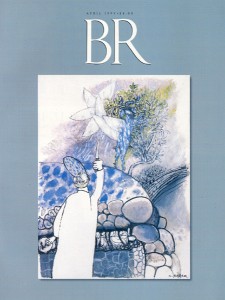Bible Critics Respond: An Interview
Hershel Shanks: Do you agree or disagree, or don’t you know whether you agree, with Dick Friedman’s contention that J, as we have it in the Tetrateuch, is also the author of the passages he identifies in Deuteronomy and the rest of the Deuteronomistic History through Kings?
P. Kyle McCarter: In one word?
Ronald S. Hendel: Scholars can’t use just one word.
Shanks: You’ll have plenty of chance to explain. I want to get your positions on the table.
McCarter: I disagree.
Richard D. Nelson: I think he makes the best possible case that could be made, but I don’t think he makes the case well enough. So I disagree.
Hendel: I agree, disagree and don’t know. (laughter)
McCarter: Where J ends has always been a problem. Most emphatically, however, it does not include the so-called Court History of David (2 Samuel 9 to 1 Kings 2). It’s very unlikely J goes beyond parts of the Book of Joshua. I’m inclined to end J with the Tetrateuch, as the majority of scholars do. The theme of J reaches its natural culmination in the conquest of the Promised Land, so I wouldn’t be surprised if the end of J is somehow embedded in the Book of Joshua or if J at one time included an account of the conquest of the land and that material has now been lost. But I don’t see any reason to connect the materials in Samuel and Kings with J.
Nelson: Certainly a lot of the themes of J are also in Joshua, Judges and Samuel. What I am unable to find is a plot connection. It is not at all clear to me that the Court History of David makes a good conclusion for the narrative problems that are raised in J in Genesis.
Already a library member? Log in here.
Institution user? Log in with your IP address.

